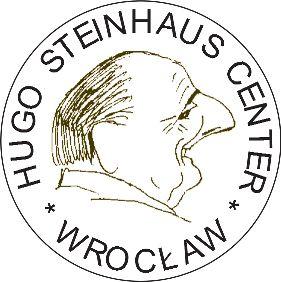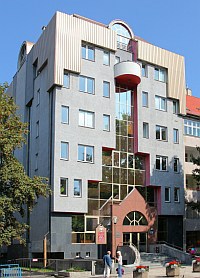
European Consortium for Mathematics in Industry
Regular Teaching Center at Wrocław University of Science and Technology
Applied Mathematics
2007 Wrocław ECMI Flyer:
Wrocław University of Technology joins the ECMI educational system (2007)
- english version: Flyer_2007_PWr.pdf
- polish version: Ulotka_2007_PWr.pdf
About Wrocław and Wrocław's group
Wrocław is a city with a hundred bridges, Europe's fourth after Venice, St. Petersburg and Amsterdam. The river Odra (Oder) flows through Wrocław forming a number of branches. Within a radius of 500 km lie a few capitals and major urban centers, such as Warsaw, Cracow, Berlin, Dresden, Vienna, Prague and Bratislava. Wrocław has more than 10 higher education institutions with 140 thousand students and is a significant European center for science, culture and economy.
Wrocław University of Technology (WUT) was founded in 1945 (see http://www.portal.pwr.edu.pl/index,242.dhtml). After World War II, a group of professors from the University and Technical University of Lvov (now Ukraine) arrived in Wrocław and brought new academic life to the destroyed buildings of the Technische Hochschule Breslau. Among the professors who gave the first lectures was Hugo Steinhaus (see ECMI Newsletter 33) – one of the founders and organizers of the Wrocław mathematical community. Steinhaus has always been interested in various practical problems of biology, medicine, geography and technology, and subsequently has stimulated teaching and research in applied mathematics. In 1953 he founded the journal Applicationes Mathematicae, which is being published to date (http://journals.impan.gov.pl/am/).
In the 80's and 90's, probability and mathematical statistics were the dominating research areas at the Institute of Mathematics at WUT. Nevertheless, in the early 90's began the process of a greater diversification of topics. This process is still continuing and almost every year the research at the Institute is enriched by new areas of mathematics, and recently also of computer science. The latter change is well reflected in the present name of the institute - Institute of Mathematics and Computer Science (http://im.pwr.edu.pl/?lang=eng).
Also in the early 90’s the Hugo Steinhaus Center for Stochastic Methods in Science and Technology was founded (http://www.im.pwr.edu.pl/~hugo). The goal of the Center is to organize, encourage and support research on and education in stochastic techniques as applied in science and technology. A study of related theoretical mathematical issues is an integral part of the Center's research. Random and chaotic phenomena represent an area where certain frontiers of mathematics, economics, natural sciences, and engineering can fully overlap on problems that are fundamental and yet have practical implications in finance and technology.
For a long time the traditional scheme of five year Master studies in mathematics has been used at WUT. Now WUT introduces two-stage studies according to the Bologna scheme, i.e. undergraduate and graduate. After the first 3-year (6-term) stage students obtain the Bachelor's degree in (general) mathematics, without having to submit a final project. After the second 2-year (4-term) stage students obtain the Master's degree. The preparation of the final project (Master thesis) and the final exam are obligatory. Currently, at WUT there are four specializations for Master studies in mathematics, namely:
- Financial and Actuarial Mathematics (Economathematics)
- Mathematical Aspects of Computer Science
- Mathematical Statistics
- Theoretical Mathematics
The Financial and Actuarial Mathematics specialization, established in 1994 and supervised by members of the Hugo Steinhaus Center, was the first such a program in Poland and one of the first in Europe. For over 12 years it has been a highly successful curriculum, providing students with solutions to a number of industry's most intriguing questions. It has attracted attention of the best high school students in Wrocław and Southwest Poland, in part because the graduates (10-15 a year) have no problems with finding good jobs in the finance and insurance sectors in Poland and abroad.
The Financial and Actuarial Mathematics curriculum covers the ECMI "Economathematics" educational requirements (the description of all courses can be found at http://im.pwr.edu.pl/MatematykaSKursy.php#ECMI). Interestingly, there are already a number of foreign students attending this program and some of the courses are given in English. The seminar on mathematical modeling for industry and graduate courses for the Technomathematics curriculum will begin soon. All of the mentioned factors are clearly paving the way for Econo- and Technomathematics studies at WrUT according to the ECMI standards.

